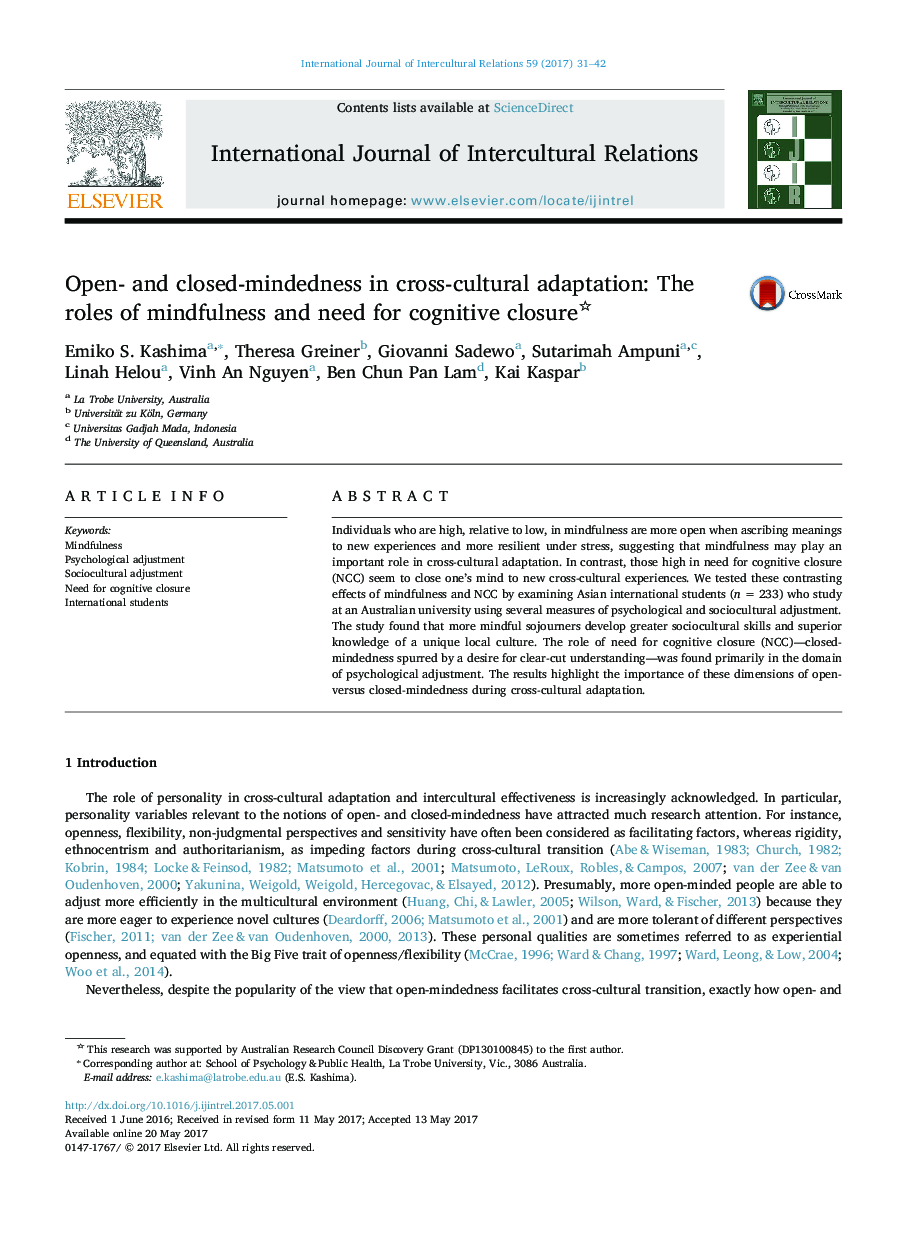| Article ID | Journal | Published Year | Pages | File Type |
|---|---|---|---|---|
| 5045557 | International Journal of Intercultural Relations | 2017 | 12 Pages |
Individuals who are high, relative to low, in mindfulness are more open when ascribing meanings to new experiences and more resilient under stress, suggesting that mindfulness may play an important role in cross-cultural adaptation. In contrast, those high in need for cognitive closure (NCC) seem to close one's mind to new cross-cultural experiences. We tested these contrasting effects of mindfulness and NCC by examining Asian international students (n = 233) who study at an Australian university using several measures of psychological and sociocultural adjustment. The study found that more mindful sojourners develop greater sociocultural skills and superior knowledge of a unique local culture. The role of need for cognitive closure (NCC)âclosed-mindedness spurred by a desire for clear-cut understandingâwas found primarily in the domain of psychological adjustment. The results highlight the importance of these dimensions of open- versus closed-mindedness during cross-cultural adaptation.
